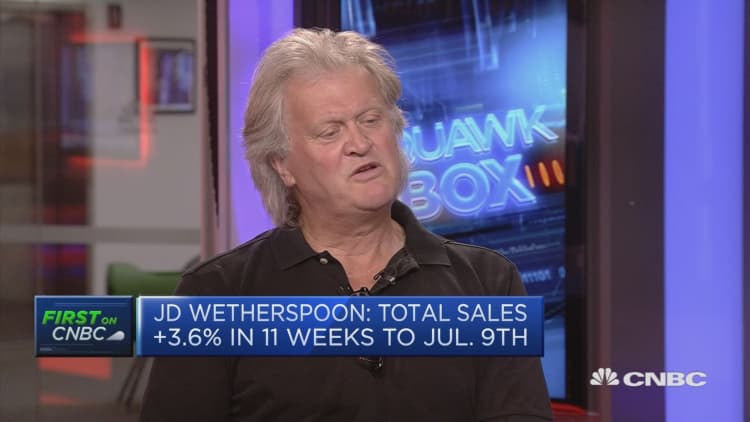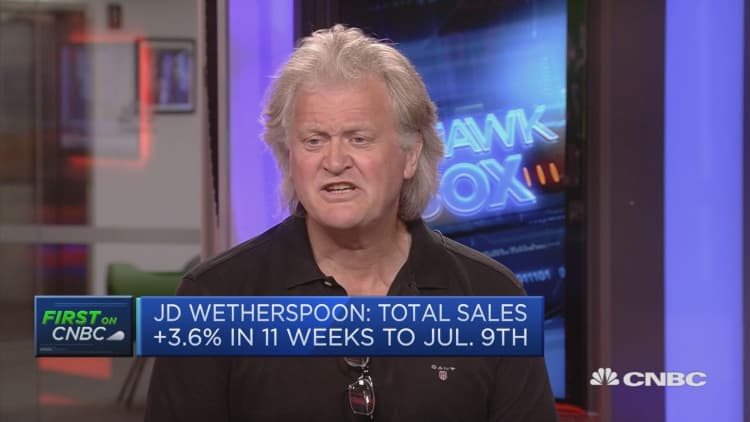
Britain should be willing to accept "a few tariffs" under the World Trade Organisation (WTO) rules in order to regain control of its borders and establish a new points-based immigration system akin to the U.S., the chairman of British pub chain J D Wetherspoon has said.
Tim Martin, founder of the chain which employs some 37,000 people across the U.K., told CNBC Wednesday that paying international tariff rates would still leave British businesses in a better position than under a deal with the European Union.
The U.K. is currently negotiating its split from the EU following the Brexit vote of June 23 last year. It is estimated that U.K. businesses could face tariffs of £5.2 billion ($6.6 billion) per year on exports to the EU if it fails to negotiate a deal, according to think tank Civitas. Under WTO rules, tariffs range from 32 percent on wine to 9.8 percent on cars.
Though Martin admitted a free trade deal would be better, he said it was "quite possible" to pay "a few tariffs."

"It doesn't amount to much under WTO rules – and still do better than deals with the EU," said Martin, who imports many of his drinks from exporters outside of the EU.
By relinquishing the free trade deal the U.K. currently enjoys with the EU, Britain would also be able to manage its immigration policy – something that Prime Minister Theresa May has advocated in her hard Brexit agenda.
"It's the great fallacy at the very, very heart of pro-Euro thinking, which is that to have high immigration you need to have an undemocratic EU. You don't. Australia, New Zealand, Singapore, for example, all have much higher levels of immigration than the U.K., but it's controlled by their own parliament.
"(We need) a sensible American, New Zealand, Australia, Singapore one (policy), on a points-system.
'There are a lot of embarrassed economists'
Martin also let rip at "ludicrously gloomy" remainers, who had insisted that the U.K. economy would sink into recession in the wake of the Brexit vote.
Though sterling was devalued by around 11 percent from $1.4878 to $1.3218 in the immediate aftermath, and has remained lower in the year since, the overall economy has so far held up better than some analysts' expectations.
"There's a lot of nonsense being talked, a lot of embarrassed economists around there who think they can tell what the future's going to bring, but they can't."


